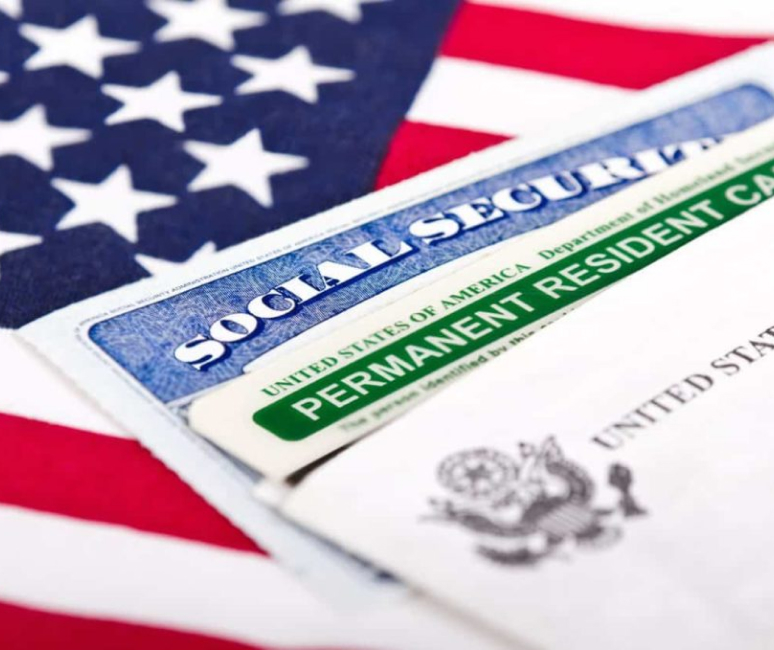Last Update: 2024-03-12
American Military Parole in Place ("we", "our" or "us") is committed to protecting your privacy. This Privacy Policy explains how American Military Parole in Place collects, uses and discloses your personal information.
This Privacy Policy applies to our website, https://ampipa.org/ and its associated subdomains (collectively, our "Service") together with our application, American Military Parole in Place. By accessing or using our Service, you indicate that you have read, understood and agree to our collection, storage, use and disclosure of your personal information as described in this Privacy Policy and our Terms of Service.
Definitions and Key Terms
To help explain things as clearly as possible in this Privacy Policy, whenever any of these terms are referred to, they are strictly defined as:
- -Cookie: Small amount of data generated by a website and saved by your web browser. It is used to identify your browser, provide analytics, remember information about you such as your language preference or login information
- -Company: When this policy mentions "Company", "we", "us" or "our", it refers to American Military Parole in Place, which is responsible for your information under this Privacy Policy.
- -Platform: American Military Parole in Place Internet website, web application, or public-facing digital application
- -Country: Where American Military Parole in Place or the owners/founders of American Military Parole in Place are located, in this case it is the United States
- -Customer: Refers to the company, organization or person that registers to use the American Military Parole in Place Service to manage relationships with its consumers or service users.
- -Device: Any device connected to the Internet, such as a phone, tablet, computer or any other device that can be used to visit American Military Parole in Place and use the services
- -IP Address: Each device connected to the Internet is assigned a number known as an Internet Protocol (IP) address. These numbers are usually assigned in geographic blocks. An IP address can often be used to identify the location from which a device connects to the Internet
- -Personnel: Refers to those individuals who are employed by American Military Parole in Place or are under contract to perform a service on behalf of a party
- -Personal data: Any information that directly, indirectly or in connection with other information, including a personal identification number, allows the identification of a natural person.
- -Service: Refers to the service provided by American Military Parole in Place as described in the relative terms (if available) and on this platform.
- -Third Parties: Refers to advertisers, contest sponsors, promotional and marketing partners, and others who provide our content or whose products or services we believe may interest you.
- -Website The American Military Parole in Place site, which can be accessed through this URL: https://en.ampipa.org/
- -You: A person or entity who is registered with American Military Parole in Place to use the Services.
What information do we collect?
We collect information from you when you visit our platform, register on our site, place an order, subscribe to our newsletter, respond to a survey or fill out a form.
- -Name/username
- -Phone numbers
- -E-mail address
- -Age
How do we use the information we collect?
Any of the information we collect from you may be used in one of the following ways:
- -To personalize your experience (your information helps us better respond to your individual needs)
- -To improve our platform (we continually strive to improve what our platform offers based on the information and feedback we receive from you)
- -To improve customer service (your information helps us respond more effectively to your customer service requests and support needs)
- -To process transactions
- -To administer a contest, promotion, survey, or other site feature
- -To send periodic emails
When does American Military Parole in Place use third-party end-user information?
American Military Parole in Place will collect end user data necessary to provide American Military Parole in Place services to our customers.
End users may voluntarily provide us with information that they have made available on social media websites. If you provide us with such information, we may collect publicly available information from the social media websites you have indicated. You can control the amount of information that social media websites make public by visiting these websites and changing your privacy settings.
When does American Military Parole in Place use third-party customer information?
We receive information from third parties when you contact us. For example, when you submit your email address to us to indicate interest in becoming a customer of American Military Parole in Place, we receive information from a third party that provides automated fraud detection services to American Military Parole in Place. From time to time, we also collect information that is made publicly available on social media websites. You can control the amount of information that social media websites make public by visiting these websites and changing your privacy settings.
Do we share the information we collect with third parties?
We may share the information we collect, both personal and non-personal, with third parties such as advertisers, contest sponsors, marketing and promotional partners, and others who provide our content or whose products or services we believe may interest you. We may also share it with our current and future affiliated companies and business partners, and if we are involved in a merger, sale of assets or other business reorganization, we may also share or transfer your personal and non-personal information to our successors in interest.
We may engage trusted third-party service providers to perform functions and provide services to us, such as hosting and maintaining our servers and platform, database storage and management, email management, storage marketing, data processing. credit cards, service and fulfillment of orders for products and services that you may purchase through the platform. We may share your personal information, and possibly some non-personal information, with these third parties to enable them to perform these services for us and you.
We may share portions of our log file data, including IP addresses, for analytics purposes with third parties such as web analytics partners, app developers, and advertising networks. If your IP address is shared, it may be used to estimate general location and other technological data, such as connection speed, whether you have visited the Platform in a shared location, and the type of device used to visit the Platform. They may aggregate information about our advertising and what you see on the platform and then provide audits, investigations and reports for us and our advertisers.
We may also disclose personal and non-personal information about you to government, law enforcement officials or private third parties as we believe, in our sole discretion, necessary or appropriate to respond to claims, legal process (including subpoenas), to protect our rights and interests or those of a third party, the safety of the public or any person, to prevent or stop any illegal, unethical or legally actionable activity, or to comply with applicable court orders, laws, rules and regulations.
Where and when is customer and end-user information collected?
American Military Parole in Place will collect the personal information you submit to us. We may also receive personal information about you from third parties as described above.
How do we use your email address?
By submitting your email address on this platform, you agree to receive emails from us. You may opt out of any of these email lists at any time by clicking on the opt-out link or other unsubscribe option included in the respective email. We only send emails to people who have authorized us to contact them, either directly or through a third party. We don't send unsolicited commercial emails, because we hate spam as much as you do. By submitting your email address, you also agree to allow us to use your email address for customer audience targeting on sites like Facebook, where we display personalized advertising to specific people who have opted in to receive communications from us. Email addresses submitted only through the order processing page will be used for the sole purpose of sending you information and updates related to your order. However, if you have provided us with the same email through another method, we may use it for any of the purposes set out in this Policy. Note: If at any time you would like to unsubscribe from receiving future emails, we include detailed unsubscribe instructions at the bottom of each email.
How long do we keep your information?
We retain your information only as long as we need it to provide you with American Military Parole in Place and fulfill the purposes outlined in this policy. This is also the case for anyone with whom we share your information and who performs services on our behalf. When we no longer need to use your information and it is no longer necessary for us to retain it to comply with our legal or regulatory obligations, we will delete it from our systems or depersonalize it so that we cannot identify you.
How do we protect your information?
We implement a variety of security measures to maintain the security of your personal information when you place an order, enter, submit or access your personal information. We offer the use of a secure server. All confidential/credit information supplied is transmitted via Secure Socket Layer (SSL) technology and then encrypted into our payment gateway providers database only to be accessible by those authorized with special access rights to such systems, and must keep information confidential. After a transaction, your private information (credit cards, social security numbers, finances, etc.) is never archived. However, we cannot guarantee the absolute security of any information you transmit to American Military Parole in Place or guarantee that your information on the service will not be accessed, disclosed, altered or destroyed by a breach of any of our physical, technical or safeguards. management.
Could my information be transferred to other countries?
American Military Parole in Place is incorporated in the U.S. Information collected through our website, through direct interactions with you, or through the use of our support services may be transferred from time to time to our offices or staff, or to third parties, located around the world, and may be viewed and be hosted anywhere in the world, including countries that may not have generally applicable laws regulating the use and transfer of such data. To the fullest extent permitted by applicable law, by using any of the above, you voluntarily consent to the cross-border transfer and hosting of such information.
Is the information collected through the American Military Parole in Place Service secure?
We take precautions to protect the security of your information. We have physical, electronic and administrative procedures in place to help safeguard, prevent unauthorized access, maintain data security and correctly use your information. However, neither people nor security systems are infallible, including encryption systems. Additionally, people may commit intentional crimes, make mistakes, or fail to follow policies. Therefore, although we use reasonable efforts to protect your personal information, we cannot guarantee its absolute security. If applicable law imposes any unwaivable duty to protect your personal information, you agree that intentional misconduct will be the standards used to measure our compliance with that duty.
Can I update or correct my information?
The rights you have to request updates or corrections to the information American Military Parole in Place collects depend on your relationship with American Military Parole in Place. Staff may update or correct their information as detailed in our internal company employment policies.
Customers have the right to request restriction of certain uses and disclosures of personally identifiable information as follows. You may contact us to (1) update or correct your personally identifiable information, (2) change your preferences regarding communications and other information you receive from us, or (3) delete personally identifiable information maintained about you in our system (subject to the following paragraph), canceling your account. Such updates, corrections, changes and deletions will have no effect on other information we maintain or information we have provided to third parties in accordance with this Privacy Policy prior to such update, correction, change or deletion. To protect your privacy and security, we may take reasonable steps (such as requiring a unique password) to verify your identity before granting you access to your profile or making corrections. You are responsible for maintaining the secrecy of your unique password and account information at all times.
You should be aware that it is not technologically possible to delete each and every record of the information you have provided to us from our system. The need to back up our systems to protect information from inadvertent loss means that a copy of your information may exist in a form that cannot be erased and will be difficult or impossible for us to locate. Immediately upon receipt of your request, all personal information stored in the databases we actively use and other easily searchable media will be updated, corrected, changed or deleted, as appropriate, as soon as and to the extent reasonably and technically feasible. possible.
If you are an end user and would like to update, delete or receive any information we have about you, you may do so by contacting the organization of which you are a customer.
Business Sale
We reserve the right to transfer information to a third party in the event of a sale, merger or other transfer of all or substantially all of the assets of American Military Parole in Place or any of its corporate affiliates (as defined herein), or the portion of American Military Parole in Place or any of its Corporate Affiliates to which the Service relates, or in the event that we discontinue our business or file a petition or have filed a petition against us in the event of any bankruptcy, reorganization or proceeding similar, provided that the third party agrees to adhere to the terms of this Privacy Policy.
Affiliates
We may disclose information (including personal information) about you to our corporate affiliates. For purposes of this Privacy Policy, "Corporate Affiliate" means any person or entity that directly or indirectly controls, is controlled by, or is under common control with American Military Parole in Place, whether by ownership or otherwise. Any information relating to you that we provide to our corporate affiliates will be treated by such corporate affiliates in accordance with the terms of this privacy policy.
Governing Law
This Privacy Policy is governed by the laws of the United States without regard to its conflict of laws provisions. You consent to the exclusive jurisdiction of the courts in connection with any action or dispute arising between the parties under or in connection with this Privacy Policy, except for those persons who may have the right to bring claims under the Privacy Shield or the Swiss-American framework.
The laws of the United States, excluding its conflicts of laws, will govern this Agreement and your use of the Platform. Your use of the Platform may also be subject to other local, state, national or international laws.
By using American Military Parole in Place or contacting us directly, you agree to this Privacy Policy. If you do not agree to this Privacy Policy, you should not interact with our website or use our services. Your continued use of the Website, direct interaction with us, or following the posting of changes to this Privacy Policy that do not materially affect the use or disclosure of your personal information will mean that you accept those changes.
Your consent
We have updated our Privacy Policy to give you full transparency about what is set when you visit our site and how it is used. By using our platform, registering an account or making a purchase, you hereby consent to our Privacy Policy and agree to its terms.
Links to other Websites
This Privacy Policy applies only to the Services. The Services may contain links to other websites that are not operated or controlled by American Military Parole in Place. We are not responsible for the content, accuracy or opinions expressed in such websites, and such websites are not investigated, monitored or checked for accuracy or completeness. Please remember that when you use a link to go from the Services to another website, our Privacy Policy is no longer in effect. Your browsing and interaction on any other website, including those linked to on our platform, is subject to that website's own rules and policies. These third parties may use their own cookies or other methods to collect information about you.
Advertising
This platform may contain third-party advertisements and links to third-party sites. American Military Parole in Place makes no representation as to the accuracy or suitability of the information contained in those advertisements or sites and accepts no responsibility or liability for the conduct or content of those advertisements and sites and the offers made by third parties. .
Advertising keeps American Military Parole in Place and many of the websites and services you use free of charge. We work hard to make sure ads are safe, discreet, and as relevant as possible.
Third party advertisements and links to other sites where goods or services are advertised are not endorsements or recommendations by American Military Parole in Place of the third party sites, goods or services. American Military Parole in Place assumes no responsibility for the content of any advertisements, any promises made, or the quality/reliability of the products or services offered in all advertisements.
Advertising Cookies
These cookies collect information over time about your online activity on the platform and other online services to make online advertising more relevant and effective for you. This is known as interest-based advertising. They also perform functions such as preventing the same ad from continually reappearing and ensuring that ads are displayed correctly to advertisers. Without cookies, it is very difficult for an advertiser to reach their audience or know how many ads were shown and how many clicks they received.
Cookies
American Military Parole in Place uses "cookies" to identify the areas of our website that you have visited. A cookie is a small piece of data that your web browser stores on your computer or mobile device. We use cookies to improve the performance and functionality of our platform, but they are not essential for its use. However, without these cookies, certain features, such as videos, may not be available or you may be asked to enter your login details each time you visit the platform as we would not be able to remember that you had logged in previously. Most web browsers can be configured to disable the use of cookies. However, if you disable cookies, you may not be able to access the functionality of our website correctly or at all. We never place personally identifiable information in cookies.
Block and disable Cookies and similar technologies
Wherever you are, you can also set your browser to block cookies and similar technologies, but this may block our essential cookies and prevent our website from functioning properly, and you may not be able to use all of its features and services in full. You should also be aware that you may also lose saved information (e.g. saved login details, site preferences) if you block cookies in your browser. Different browsers provide different controls. Disabling a cookie or a cookie category does not delete the cookie from your browser, you will need to do this yourself from your browser, you should visit your browser's help menu for more information.
Remarketing Services
We use remarketing services. What is remarketing? In digital marketing, remarketing (or retargeting) is the practice of serving ads on the Internet to people who have already visited your website. It allows your business to appear to be “following” people across the internet by serving ads on the websites and platforms they use most.
Children's Privacy
We do not target anyone under 13 years of age. We do not collect personally identifiable information from anyone under 13 years of age. If you are a parent or guardian and you are aware that your child has provided us with Personal Data, please contact Us. If we become aware that we have collected personal data from anyone under the age of 13 without verification of parental consent, we take steps to delete that information from our servers.
Changes to our Privacy Policy
We may change our Service and our policies, and we may need to make changes to this Privacy Policy so that they accurately reflect our Service and our policies. Unless otherwise required by law, we will notify you (for example, through our Service) before we make changes to this Privacy Policy and give you the opportunity to review them before they become effective. Then, if you continue to use the Service, you will be subject to the updated Privacy Policy. If you do not wish to accept this or any updated Privacy Policy, you may delete your account.
Thirdparty services
We may display, include or make available third party content (including data, information, applications and other product services) or provide links to third party websites or services ("Third Party Services").
You acknowledge and agree that American Military Parole in Place shall not be responsible or liable for any Third Party Services, including their accuracy, completeness, timeliness, validity, copyright compliance, legality, decency, quality or any other aspect thereof. American Military Parole in Place does not assume and shall not have any obligation or liability to you or any other person or entity for any Third Party Services.
Third Party Services and links thereto are provided solely as a convenience to you and you access and use them entirely at your own risk and subject to the terms and conditions of such third parties.
Facebook Pixel
Facebook pixel is an analytics tool that allows you to measure the effectiveness of your advertising by understanding the actions people take on your website. You can use the pixel to: Make sure your ads are shown to the right people. Facebook pixel may collect information from your device when you use the service. Facebook pixel collects information that is stored in accordance with its Privacy Policy.
Tracking Technologies
-Cookies
We use Cookies to improve the performance and functionality of our platform, but they are not essential for its use. However, without these cookies, certain features, such as videos, may not be available or you may be asked to enter your login details each time you visit the platform as we would not be able to remember that you had logged in previously.
-Sessions
American Military Parole in Place uses "Sessions" to identify the areas of our website that you have visited. A session is a small piece of data that your web browser stores on your computer or mobile device.
Contact Us
Please feel free to contact us if you have any questions.
-Via e-mail: INFO@AMPIPA.ORG
-Through telephone number: 833-3-267472
-Through this link: https://ampipa.org/





